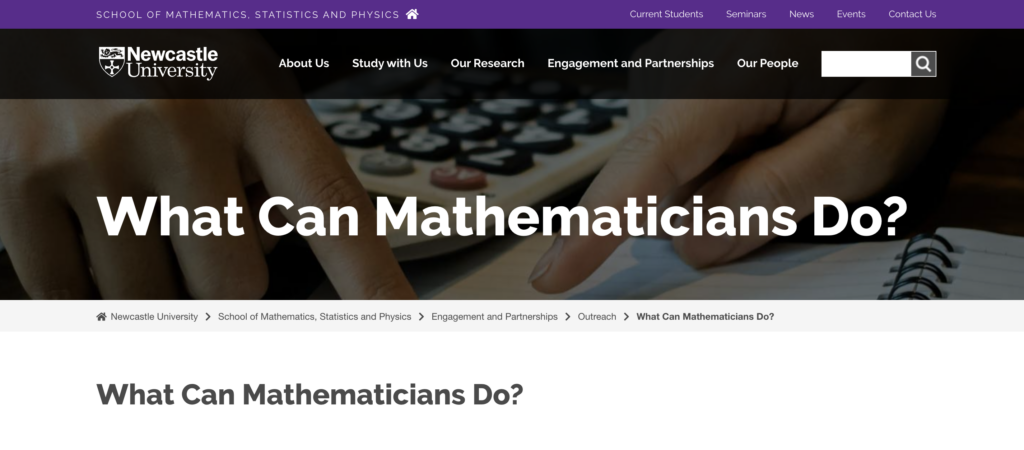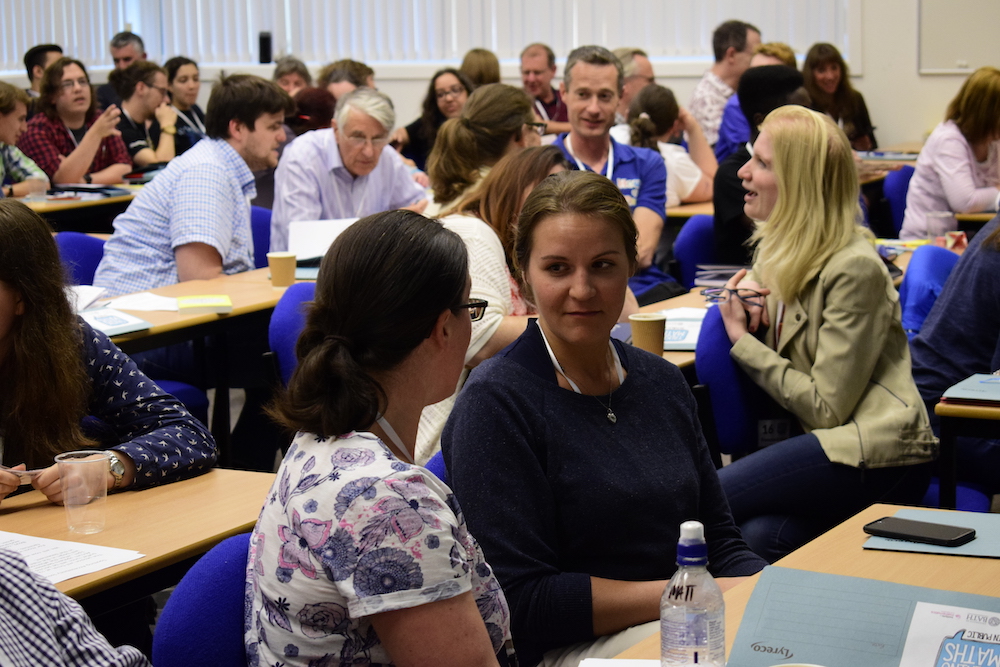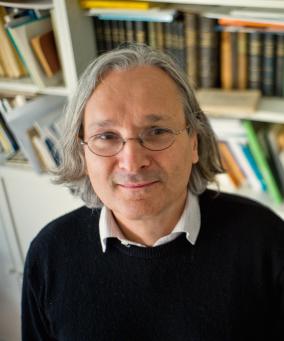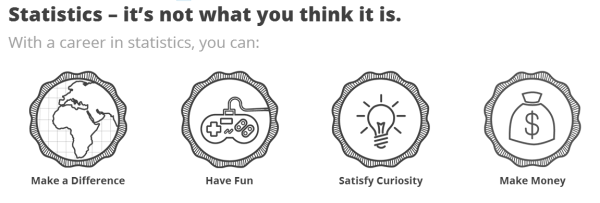This is a guest post from maths communicator Max Hughes. If you’re thinking about going to the Talking Maths in Public conference this summer, read on to find out what it’s like.
I first attended Talking Maths in Public in Cambridge at the end of August of 2019. At the time I was just about to go into my second year of a maths degree – knowing that I wanted to go into maths communication and outreach after finishing university, and keen to learn more.
Having never attended a conference before, I wasn’t quite sure what to expect when I arrived in Cambridge the evening before it kicked off. Luckily for me, I didn’t need to spend the evening alone in the hotel dwelling on my pre-conference nerves, as there was a planned pub meet up later in the evening for those who had already arrived in Cambridge.
Full of trepidation, I stepped into the lift of the hotel I was staying in, unaware that when the doors opened, I would be transported to a fantastic world of nerdery that I have never since left: the UK maths communication community. This may sound dramatic, but much like Charlie taking his first steps into the chocolate room of Willy Wonka’s factory, or Dorothy opening a door into the technicoloured world of Oz, I knew for certain that this was a seminal moment in my life.
Congregated before me in the hotel lobby was an almost perfect microcosm of the conference attendees. In my first moments at this gathering, I was greeted by a lecturer from my university, multiple popular mathematics YouTubers and speakers, a freelance editor, a couple of teachers and a mathematical knitting enthusiast… to name just a few. The other attendees made me feel almost instantly at ease in this new environment, and I went to the pub confident and excited to see what the rest of the conference would bring.
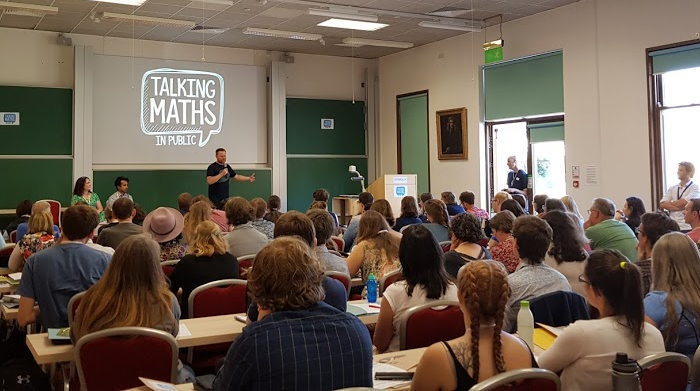
Day one of the conference started with some useful icebreaker activities followed by an engrossing talk on “Maths on YouTube”. After a short break there was a choice of 5 different workshops to choose from, presented by attendees demonstrating their own mathematical engagement activities. Forever a fan of the fantasy genre, I chose to attend an intriguing workshop that used dragons to engage and excite people about the wonders of mathematics.
The second day started off with my favourite session of the conference; a series of lightning talks by speakers and attendees talking about their work, that covered a diverse range of different types of events and projects, helping to paint a picture of the maths communication landscape not just in the UK, but globally. Following this was an important session on promoting inclusivity within engagement activities, as well as some smaller group discussion sessions and a panel on writing about mathematics. The final keynote session of the day was particularly spellbinding, with magician Neil Kelso informing the crowd on how to astonish audiences, showing that maths and magic have an unexpected amount in common.
By far the best part of the conference was the people, from the attendees brimming with mathematical possibility to the organisers who were passionate and invested in running a conference that was in equal parts informative, accepting and fun. The final morning of the conference was centred around just this, the people, in a range of networking events. This is how I found myself punting along the river Cam with fellow attendees solving maths problems to aid us in a “treasure punt”.
Throughout the entire conference a palpable air of jovial mathematics permeated the space. Whether it was impromptu conversations on mathematical cabaret, tense games of “The Mind”, or mathematical discourse on the toilet blackboards (yes, that’s a thing at the Isaac Newton Institute), the creative expression of mathematical joy was awe inspiring. From exploring the ins and outs of a beautiful city to being engrossed in deep mathematical conversation with a newly made friend, there were new perspectives around every corner.
I can honestly say that Talking Maths in Public 2019 acted as the perfect first step in my journey into the world of maths communication. The skills, contacts, and inspiration I gained empowered me to start properly communicating maths, creating a domino effect that led me to being employed as a maths outreach professional who truly feels part of a community of UK based mathematics communicators.
